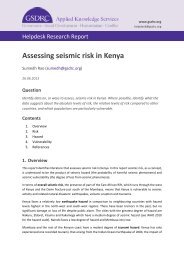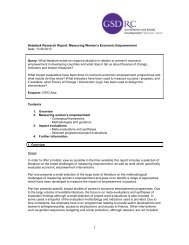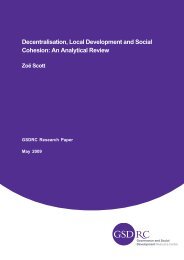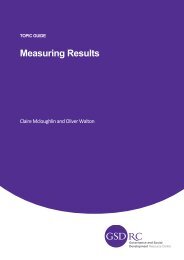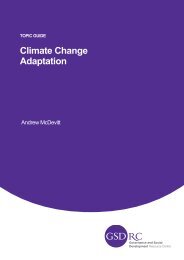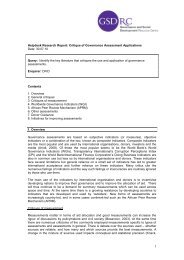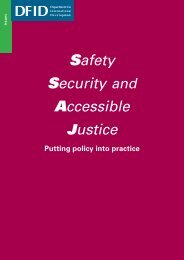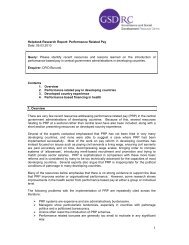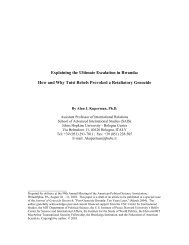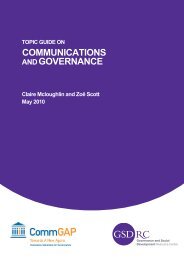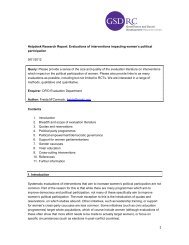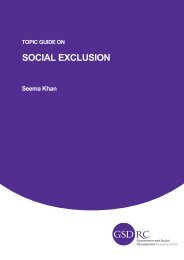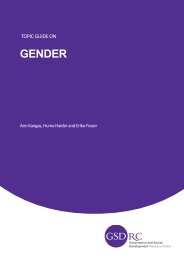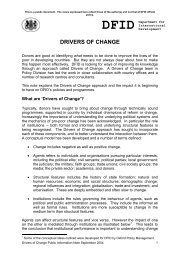ACCESS TO JUSTICE FOR THE POOR OF MALAWI? AN ... - GSDRC
ACCESS TO JUSTICE FOR THE POOR OF MALAWI? AN ... - GSDRC
ACCESS TO JUSTICE FOR THE POOR OF MALAWI? AN ... - GSDRC
- No tags were found...
Create successful ePaper yourself
Turn your PDF publications into a flip-book with our unique Google optimized e-Paper software.
legality or correctness of any finding. The magistrate may, where he notices anythingirregular make remarks on the file and forward it to the High Court.However, the above provisions do not make it mandatory for the Resident Magistratesto call for files from the lower level courts. Indeed higher courts rarely call for filesfrom lower courts, unless it is by way of confirmation. Additionally, the laymagistrates do not exercise supervisory powers over each other. Junior Magistratesare left mostly to their own devices. Consequently most of the irregularities in lowerlevel courts remain unchecked.Findings related to access to justice in the subordinate courtsThis study revealed that the general state of access to justice in Malawi is notflattering. More specifically the field data indicates that there is limited access toquality justice for the rural poor and that the range of services that are delivered inremote areas is severely limited. From an access to justice point of view the criticalareas of concern are as follows:Access to popular education about laws and systemsRural courts, in the absence of NGO’s and legal representatives, are the best-placedinstitutions to provide litigants with an understanding of their legal rights,theappropriate means of resolving disputes and how to progress with their cases. In thisregards it is necessary for court officials to routinely take the lead in providingpopular education about laws and systems in the short term.The study revealed that, despite their claims, most magistrates rarely seize theopportunities they have to educate people about the relationship between localcustoms and human rights. Even where they condemn the actions of the parties theyrarely refer to human rights notions and the Constitution to support theircondemnation.Access to affordable advice and representationThe Malawi legal system leaves many without access to legal advice andrepresentation.Consequently, for many would-be applicants the initial hurdle on the way to courts isfinding appropriate legal advice.This study found that the Clerk of Court is the first point of contact between thelitigant and the formal legal system. The duties of a clerk include preparing summons,warrants, acting as official interpreter and keeping records of proceedings. Since mostof the litigants are unrepresented they get legal advice from the court clerks who areill trained and under-qualified to perform the role of counsel. Indeed, most of theseclerks are elevated court messengers who have never had any training in clericalwork. The procedure in lower level magistrates is that the complainant does not haveto lodge pleadings with the court clerk, s/he simply makes an oral statement to theclerk who determines whether the statement discloses a civil cause of action or acriminal offence. This has the advantage of speed and simplicity. However, the factthat the Clerks are ill-trained and lack the requisite qualifications to perform this task9



